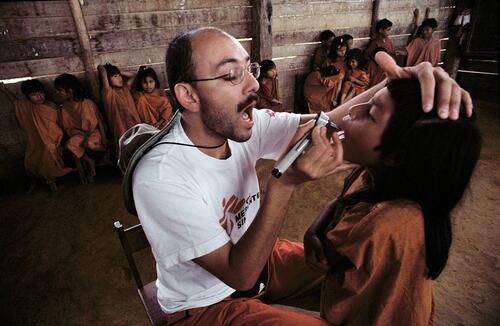During the 1990s, MSF teams made a bitter observation: we were failing to treat some of our patients suffering from infectious diseases, while in developed countries, remarkable progress was being made in the field of health. Two decades on, medicines in developing countries are still either too expensive, aren't suitable to be used in many of the contexts in which we work (for example, in hot, humid conditions or where there's a lack of electricity), or simply don't exist for the diseases we need to treat.
In 1999, we launched the Campaign for Access to Essential Medicines, now known as the Access Campaign. Its mission focuses on three areas: overcoming barriers to access to essential medicines, stimulating research and development for neglected diseases, promoting health exceptions to global trade agreements.
In 2003, MSF joined several research institutes, including the Institut Pasteur, to create the Drugs for Neglected Diseases initiative (DNDi), a non-profit research and development organisation engaged in research and development of new treatments for neglected diseases.

Amid the death, new hope

Offering lessons for treating HIV/AIDS to Pepfar

Don't trade away health in the FTAA

Glimmer of hope in the midst of sobering AIDS news

African patients adhere well to anti-HIV regimens

Trading Away Health: Intellectual Property and Access to Medicines in the Free Trade Area of the Americas (FTAA) Agreement

Demystifying antiretroviral therapy in resource-poor settings

Public health and company wealth








